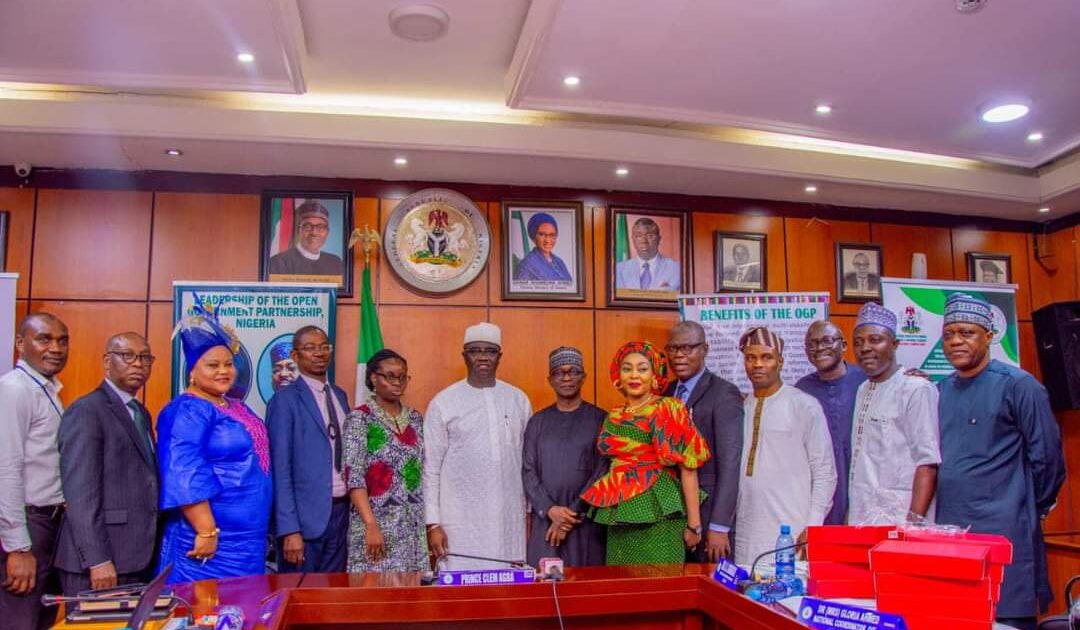CSJ Commits to Engendering Fiscal Transparency with Launch of OGP Nigeria NAP III
CSJ Commits to Engendering Fiscal Transparency with Launch of OGP Nigeria NAP III
-
July 7, 2023
- Posted by: Center for Social Justice

The Centre for Social Justice (CSJ) has committed to engendering openness and accountability in Nigeria’s procurement processes with the launch of the Open Government Partnership (OGP) Nigeria National Action Plan (NAP) III.
The NAP III aims to address issues of opacity, corruption, resource wastage, and the quality of services delivered to Nigerians.
The primary focus of Commitment 3 of the new plan under Fiscal Transparency thematic area is to promote wider stakeholder participation in the procurement spectrum, ensuring that relevant actors are involved in decision-making processes. Notably, the integration of the National Open Contracting Portal (NOPOCO) and the Electronic Governance Platform (EGP) portal will play a crucial role in achieving timely data publication and availability. By driving the use of published data among different categories of stakeholders, CSJ aims to optimize results and foster a culture of transparency and accountability.
One of the major challenges faced by stakeholders is the limited access to procurement data, even with the deployment of NOCOPO. This issue stems from low compliance with the directive on disclosing procurement data and the unavailability of data throughout various stages of the procurement cycle. CSJ recognizes the potential of the EGP in addressing these gaps and effectively capturing the entire contracting process within a single portal.
The utilization of open contracting practices holds several values, particularly in harnessing innovative technology to enhance access to procurement information. Firstly, transparency will be greatly enhanced through the disclosure of procurement data, shedding light on the expenditure of public resources across the entire procurement cycle and up to the implementation stage. This increased transparency will enable citizens to understand the decision-making process, encouraging better resource management and deterring unethical practices.
Secondly, accountability will be reinforced as the disclosure of procurement data empowers citizens to challenge decisions made during the procurement cycle. By holding decision-makers accountable, the utilization of public resources can be improved, leading to more efficient and effective service delivery.
Moreover, the adoption of open contracting practices helps the government achieve value for money by establishing a watchdog system. This system allows a wider range of stakeholders to scrutinize and monitor contract implementation, thereby curbing unethical conduct and corrupt practices.
Inclusion is another crucial aspect of open contracting, as technology enables greater stakeholder participation while minimizing human interface. This inclusive approach ensures that stakeholders from diverse backgrounds can access and assess government programs, providing valuable feedback on how these initiatives impact their lives.
Also, citizen engagement will be bolstered through the availability of procurement data across the entire procurement cycle and implementation phase. This comprehensive access allows all stakeholders to monitor procurement activities and contribute feedback, ultimately leading to improved service delivery and greater satisfaction among the public.
Highlighting the significance of this commitment, CSJ has also joined the National Steering Committee NAP III, a newly inaugurated body by the federal government in Abuja. With CSJ’s active involvement, the committee aims to drive positive change and foster a culture of openness and accountability in Nigeria’s procurement landscape.
As CSJ embarks on this transformative journey, the organization’s commitment to engendering fiscal transparency through the OGP Nigeria NAP III is poised to make a lasting impact. By prioritizing stakeholder participation, integrating technology, and promoting open contracting values, CSJ strives to ensure the efficient utilization of public resources, combat corruption, and enhance service delivery for the benefit of all Nigerians.
